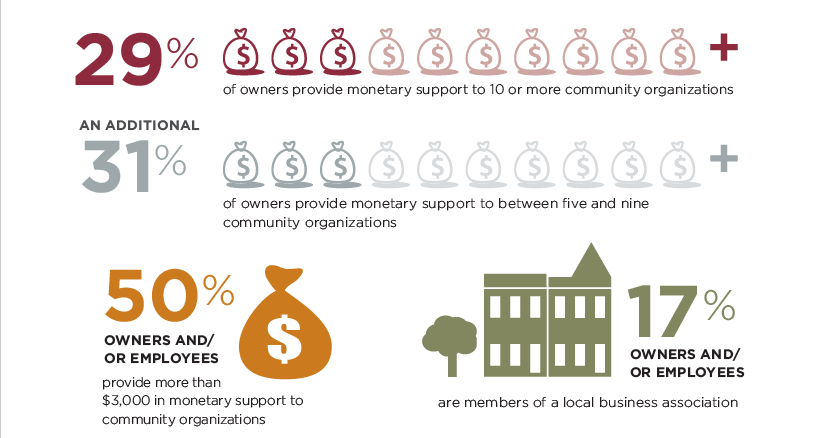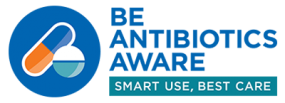5 Reasons to Choose Your Local Community Pharmacy
Accurate and Reliable Care
Affordable Care
Convenience
Enhanced Services and Patient Education
Support Your Community

Sources
Antibiotics: The Importance of Compliance and Antimicrobial Resistance
Antibiotics are an essential part of treatment for many infections and can save lives, but any time antibiotics are used, they can cause side effects and contribute to the development of antibiotics resistance. In U.S. doctors’ offices and emergency departments, at least 28% of antibiotic courses prescribed each year are unnecessary, which makes improving antibiotic prescribing and use a national priority. (1) Antibiotics are medicines that fight bacterial infections by either killing the bacteria or making it difficult for the bacteria to grow and multiply. (2)
Antibiotics ONLY treat certain infections caused by bacteria, such as:
- Strep throat
- Whooping cough
- Urinary tract infection (UTI)
- Sepsis
Antibiotics DO NOT work on viruses and some common bacterial infections, such as:
- Colds and runny noses
- Sore throats (except strep throat)
- Flu
- Chest colds such as bronchitis
- Sinus infections
- Some ear infections
The Importance of Antibiotic Compliance
It’s important to use antibiotics only when they are needed, and to use them properly. The misuse of antibiotics can be categorized as taking the wrong antibiotic, taking the wrong dose of an antibiotic, or taking an antibiotic for the wrong length of time. (2) When antibiotics are needed, the benefits usually outweigh the risks of side effects. It’s very important that you take the correct dose for the entire length that was prescribed by your doctor.
One of the most common reasons for stopping antibiotic use prematurely is that patients feel better and think they no longer have to take their medication. Straying from the instructions on an antibiotic prescription not only can lead to a flare-up of the infection, but also to the development of resistance bacteria.
Antimicrobial Resistance
Antimicrobial resistances happens when germs like bacteria and fungi can defeat the antibiotics designed to kill them. That means they aren’t killed and continue to grow. It does not mean our body is resistant to antibiotics or antifungals. Resistant infections can be difficult, and sometimes impossible, to treat. (3)
Antimicrobial resistance is a naturally occurring process but is accelerated when the presence of antibiotics or antifungals pressure bacteria and fungi to adapt. Antibiotics and antifungals kill some germs that cause infections, but they also kill helpful germs that protect our body. The resistant germs then survive and multiply and have resistance traits in their DNA that can spread to other germs. (4)
Resistant germs do not only affect you. Resistant germs can spread between people, animals, and the environment, and can cause deadly infections. Antimicrobial resistance has been found in every U.S. state. We all have a responsibility to act against antimicrobial resistance, including: (5)
- Prevent infections in the first place by:
- Keeping your hands clean
- Getting vaccinated
- Using antibiotics appropriately
- Recognizing signs and symptoms of infections
- Practicing healthy habits around animals
- Preparing food safely
- Staying healthy when traveling abroad
- Preventing STDs
- Improve antibiotic and antifungal use.
- Stop the spread of resistance when it does happen.
Side Effects of Antibiotics
Another common reason for stopping antibiotic use early is experiencing negative side effects. Common side effects of antibiotics include: (7)
- Digestive problems such as nausea, indigestion, vomiting, diarrhea, bloating, loss of appetite, and stomach pain or cramping
- Fungal infection
- Yeast infections
- Drug interactions
- Sensitivity to the sun
- Staining of skin, nails, teeth, and bones
A patient should always speak with their pharmacist about possible side effects and how best to take their antibiotics, as some are recommended to take with food to avoid possible digestive issues. If you experience any side effects, call your doctor right away to discuss possible alternative therapy.
More rare and severe side effects could include anaphylaxis. Signs of anaphylaxis include:
- Rapid heartbeat
- Hives or a red, itchy rash
- Feelings of uneasiness and agitation
- Tingling sensations and dizziness
- Swelling of the face, mouth, and throat
- Rapid swelling of the lips
- Severe wheezing, coughing, or trouble breathing.
- Low blood pressure
- Fainting
- Seizures
Anaphylaxis can be fatal without immediate emergency care. If you suspect anaphylaxis, call 911 immediately. (7)
U.S. Antibiotic Awareness Week
U.S. Antibiotic Awareness Week is observed November 18-24, 2023. It is an annual one-week observance that raises awareness of the importance of proper antibiotic use to combat the threat of antimicrobial resistance.

One of the main goals of Antibiotic Awareness Week is to share the key messages of antibiotics. Those key messages are: (8)
- Antibiotics can save lives. When a patient needs antibiotics, the benefits outweigh the risk of side effects.
- Antibiotics do NOT treat viruses such as colds, flu, RSV, and COVID-19.
- Antibiotics are only needed for treating certain bacterial infections, but even some bacterial infections get better without antibiotics.
- An antibiotic will not make you feel better if you have a virus.
- If an antibiotic is not needed, they won’t help you and the side effects could still cause harm.
- Taking antibiotics can contribute to the development of antimicrobial resistance.
- If you need antibiotics, take them exactly as prescribed.
- Talk with your healthcare provider if you develop any side effects.
- Do your best to stay healthy and keep others healthy. This helps reduce antibiotic use and fights antimicrobial resistance.
- Antibiotics aren’t always the answer.
As always, if you ever have any concerns about an antibiotic that was prescribed to you, talk to your trusted local pharmacist! You can also use the CDC’s Antibiotic Knowledge test found here https://www.cdc.gov/antibiotic-use/quiz.html.
Sources:
- https://www.cdc.gov/antibiotic-use/index.html
- https://www.cdc.gov/antibiotic-use/q-a.html
- https://www.cdc.gov/drugresistance/about.html
- https://www.cdc.gov/drugresistance/about/how-resistance-happens.html
- https://www.cdc.gov/drugresistance/protect-yourself-family.html
- https://www.ncbi.nlm.nih.gov/pmc/articles/PMC4269991/#:~:text=Antimicrobial%20resistance%20results%20from%20inappropriate,required%20to%20prevent%20antimicrobial%20resistance.
- https://www.medicalnewstoday.com/articles/322850#rare-side-effects
- https://www.cdc.gov/antibiotic-use/week/toolkit.html
- « Previous Page
- 1
- …
- 6
- 7
- 8
- 9
- 10
- …
- 62
- Next Page »
